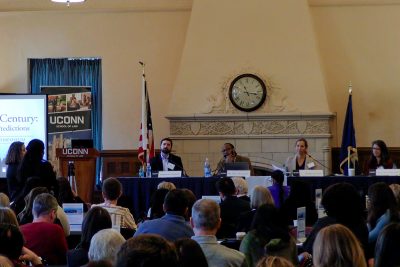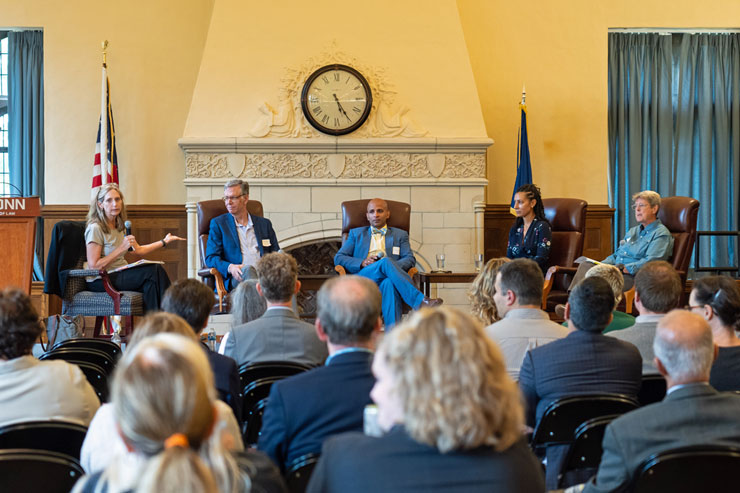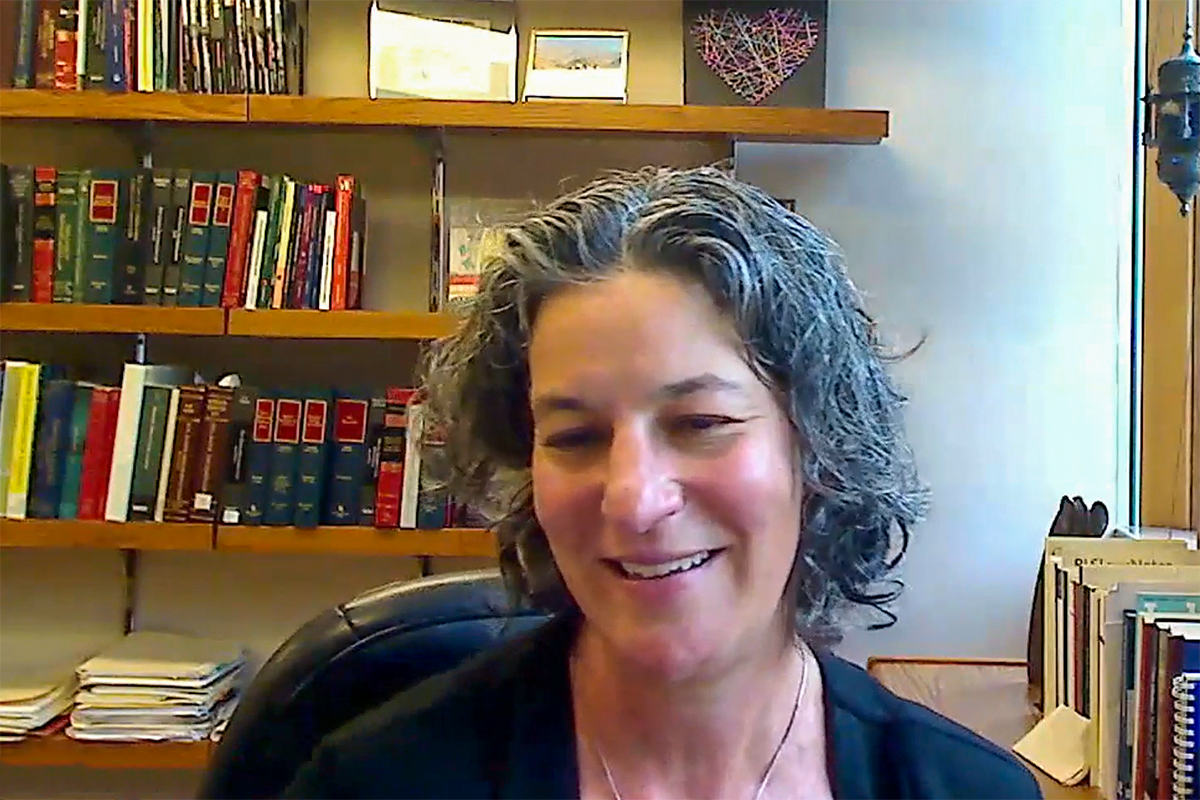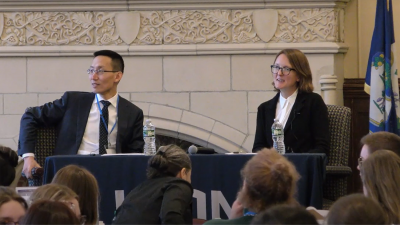Scholarly Events
UConn Law is proud to host scholarly events throughout the year that foster academic excellence and professional growth. Join us to engage with leading scholars and practitioners and advance your understanding of pressing legal issues. To see our upcoming events, visit our events page.
Scholars and experts share their analyses of recent U.S. Supreme Court opinions and other important developments in the law.
Since 2021, the Insurance Law Center at the UConn School of Law has hosted a series of talks covering new ideas in insurance law and risk regulation.
Journal Symposia

Each of the schools’ student-led journals puts together an annual symposium, bringing experts to campus to discuss their relevant research intersecting with other timely issues.
Recent Events
Hon. Gustavo Gelpí on Public Service and Civility
Judge Gustavo Gelpí of the U.S. Court of Appeals for the First Circuit spoke at the University of Connecticut School of Law on February 7, 2024, as the 2024 Day Pitney Visiting Scholar.
Never Far From Home: A Book Talk
UConn School of Law and the UConn Law Alumni of Color Affinity Group held a fireside chat on February 1, 2024, with Microsoft executive and attorney Bruce Jackson to discuss his book, "Never Far From Home: My Journey from Brooklyn to Hip Hop, Microsoft, and the Law."
Evidence Through a Critical Lens
The Connecticut Public Interest Law Journal's symposium on January 26, 2024, explored how the law of evidence intersects with systems of inequality based on gender, racial, and other marginalized group-based status.
WATCH THE VIDEOS
Recent Events
2025 CLR Annual Symposium: The Fourth Estate in a Time of Crisis
The Fourth Estate in a Time of Crisis Keynote Speaker: David Folkenflik, NPR News, Media Correspondent This symposium explored the developments that threaten the news media’s ability to function in its historic role as the “Fourth Estate” and will asked whether the law can be used to address these challenges. For example, do current laws […]
[Read More]Bureaucracy and Democracy
Investiture of Anya Bernstein as Jesse Root Professor of Law Bureaucracy gets a bad rap. Illegitimate, unaccountable, grudging, mean—bureaucracy seems to need some extra justification to make it palatable to a democratic society. At the same time, democracy depends on bureaucracy: the decisions elected representatives make have few effects without someone to implement them. And […]
[Read More]In Conversation: Executive Power and the Rule of Law
This Roundtable will bring together two leading Constitutional Law scholars for a lively discussion of recent court cases challenging the exercise of executive authority. Speakers will debate issues relating to the scope of executive power, the separation of powers, and the judiciary’s role in upholding the rule of law in a democracy. Roundtable Speakers: Steven […]
[Read More]Connecticut Supreme Court ‘On Circuit’
The Connecticut Supreme Court’s On Circuit program brings the court to the UConn School of Law and other university, college, and law school audiences, providing an opportunity to observe oral arguments in actual court cases. On November 30, 2024, the court heard these cases:
Kayla Suprynowicz, et al. v. Narendra B. Tohan
The plaintiff brought an action against the defendant doctor, alleging, among other things, that the doctor used his own sperm in providing fertility services to her parents. At issue is whether the trial court properly struck plaintiffs’ claims as sounding in wrongful life; whether the trial court properly struck plaintiffs’ claims for not alleging “extraordinary damages”; and whether Connecticut law should recognize wrongful life claims. Briefs
State of Connecticut v. Richard G. Dabate
The second case received national attention as the “Fitbit Murder.” At issue is whether the prosecutor’s alleged failure to make required disclosures, objectionable cross-examination questions, and inflammatory closing argument warrant reversal of conviction; whether a police interview of the defendant at a hospital amounted to custodial interrogation; and whether evidence of the victim’s movements recorded by Fitbit was sufficiently reliable and accurate to be admitted. Briefs.


